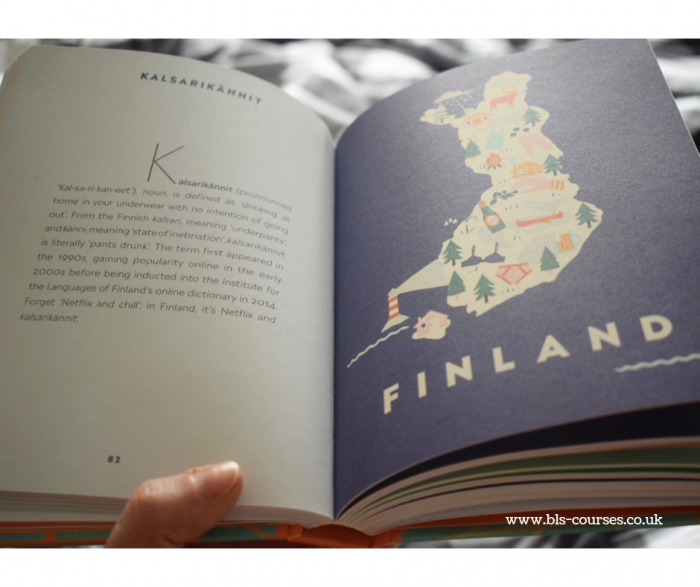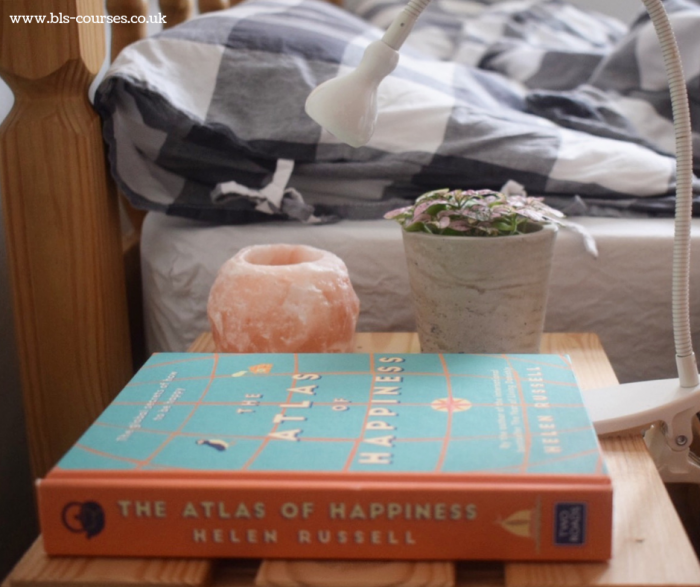What makes us happy? Money, success, family, friends, surroundings, weather? The more I read about happiness, the more I think that happiness comes from inside, from our attitude towards what happens in our life. Would you agree?
This recent publication by Helen Russell (who now lives in Denmark – consistently one of the top 10 happiest countries in the world – and is the author of The Year of Living Danishly) takes us around the world to search for happiness in as many as 30 countries! The author uses humour, modern language, her own experience & beautiful illustrations to awaken our imagination to understand happiness better. We learn about this positive emotion through concepts — phrases which might be seen as key ingredients to understanding happiness in different countries.
We read about the known concepts, such as the American homeyness, Brazilian saudade, Canadian joie de vivre, English jolly, Hawaiian aloha, Italian dolce far niente, Japanese wabi-sabi, Spanish sobremesa and Swedish lagom. But also lesser-known ideas (at least to me!): Chinese xingfu 幸福 (“the state of being happy”, the term refers to “a good life that is sufficient, sustainable, and has meaning”), Syrian tarab (“musically induced ecstasy or enchantment”) or Welsh hwyl (“a strong, stirring feeling of emotion, enthusiasm and fervour”).
The concepts that made me smile most come from Scandinavian countries (I know I need to start exploring Scandinavia!). First is the Danish arbejdsglæde (“happiness at work”, something that’s essential to living the good life for Danes). The Danish have shorter working days, a casual dress-code and more flexibility at work, time for hobbies, and they “expect to be happy at work”. [62] I know it sounds so perfect that you immediately want to move to Denmark!
The Icelandic concept can uplift our spirits (and make us happier), because it shows that our attitude matters and that reading is important (I agree!). The concept is called þetta reddast and means “it will all work out”, whether that’s a financial crisis, harsh weather conditions (in Iceland: sub-zero temperatures, snowstorms or dark winters) or day-to-day challenges.
The Norwegian concept can be linked with the positive value of being close to nature. The term friluftsliv means “free air life”, the physical and spiritual well-being uplifted after spending time in remote locations. Norway’s geography helps; their landscapes formed of mountains, forests, fjords, waterfalls and coast are spectacular. And in the evening, you can be inspired by Slow TV and watch live transmissions, e.g. of “fjords out of the window during a seven-hour train journey”. [175]
Do you already feel calmer, more relaxed and happier? Me, too.
Have you read The Atlas of Happiness? Which concept resonates most with you?
Kinga Macalla


